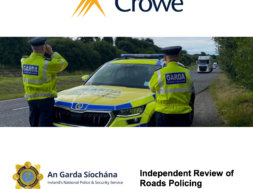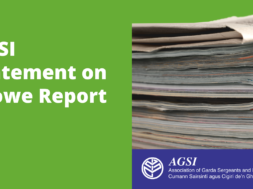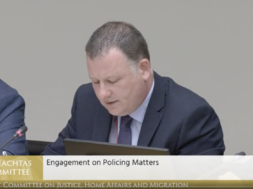by Mary Carolan Irish Times Wednesday 19th February 2014
Drink driving arrest deemed unlawful
Supreme Court finds that man was unjustifiably handcuffed after arrest
The Supreme Court has ruled in a majority decision that a man’s arrest for drink driving was unlawful because he was unjustifiably handcuffed after arrest on foot of a Garda sergeant’s own routine policy of handcuffing drink-driving suspects.
The decision means a certificate showing the man had failed breath tests cannot be used as evidence and he must be acquitted.
A District Court judge had asked the Supreme Court to rule if he was entitled to find the man’s handcuffing following arrest was unjustified where the arresting garda did not believe the man was likely to resist arrest but was rather implementing his standard personal policy of handcuffing all drink-driving suspects.
Breach
The judge also asked if he had correctly found the handcuffing was a conscious and deliberate breach of the man’s constitutional rights, rendering his arrest and detention unlawful and requiring exclusion of evidence obtained after arrest. The Garda sergeant had said he had a personal policy of handcuffing all persons arrested on suspicion of drink driving because his experience was they might become abusive or try to resist arrest.
In separate judgments yesterday, Mr Justice Nial Fennelly and Mr Justice Frank Clarke agreed the handcuffing was “pre-ordained”, involving no evaluation of the circumstances, and was unjustified.
Mr Justice Fennelly found that it rendered the arrest unlawful and Mr Justice Adrian Hardiman agreed. Mr Justice Clarke disagreed.
Mr Justice Fennelly said the power of arrest may only be exercised by a Garda or citizen with the use of such force as was reasonable in the circumstances. It was for the arresting garda to make that judgment and the law was “realistic” in that regard, appreciating decisions on arrest were often made in circumstances of urgency, danger and violence.
It was unlawful to handcuff suspects who were being arrested without consideration to the context, behaviour and demeanour of the arrested person, he found. As a matter of principle, the Garda must use only such force as was reasonable in the circumstances.
In this case, the sergeant’s policy of handcuffing all suspects, regardless of the circumstances, meant suspects were automatically subjected to force accompanying their arrest and handcuffs would be used in some cases, such as this, when it was unnecessary.
An arrest carried out in what, the judge hoped, was the “unique” circumstances of this case, was unlawful, he ruled. He found there was no need to refer to breaches of constitutional rights or the exclusionary rule (whereby evidence is deemed inadmissible if improperly obtained).
Mr Justice Clarke agreed the handcuffing was unjustified but he considered there was an issue whether an unjustified handcuffing meant this driver was at all times in unlawful custody with the effect his breath specimen evidence must be ruled inadmissible, leading to an acquittal. In this case, the manner rather than the fact of arrest was unlawful and he considered the manner did not affect the lawfulness of the arrest or the custody of the suspect after that.
Minority
This case turned on the exclusionary rule rather than on the specific basis on which certificates of alcohol concentration are admitted as evidence in drink driving cases, he said.
While he would have preferred to defer a final view on this case pending a forthcoming consideration of the exclusionary rule by a seven-judge Supreme Court in another case, he recognised he was in the minority.









